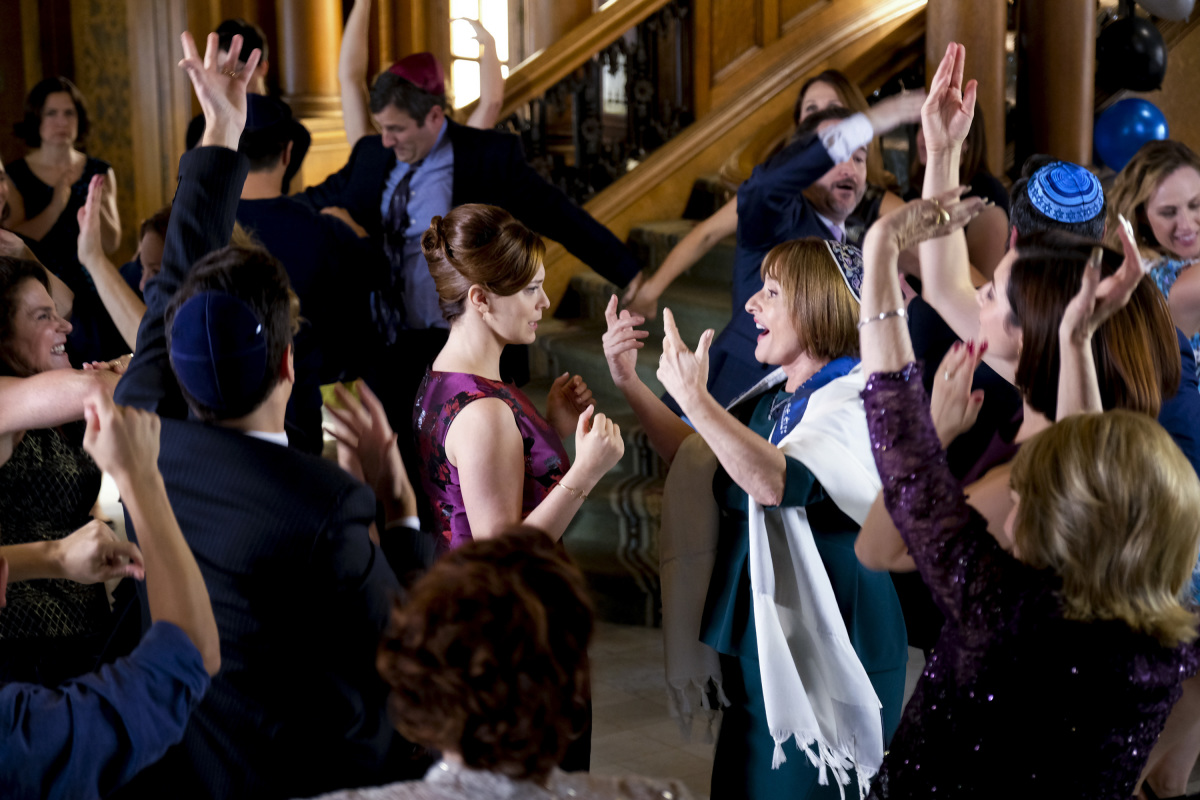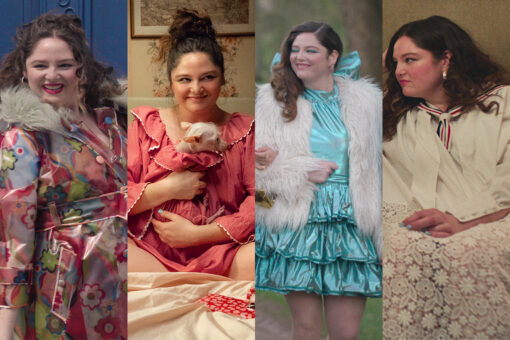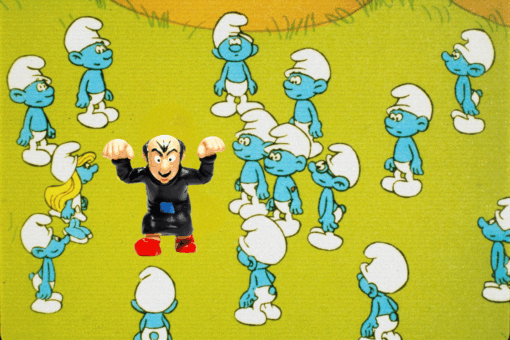Crazy Ex-Girlfriend is a breath of fresh air. Going into its fourth and final season, co-creators Rachel Bloom and Aline Brosh McKenna have successfully maintained the momentum that allowed this show to beat the odds and make it onto mainstream television in the first place. Led by Bloom’s character, Rebecca Bunch, Crazy Ex-Girlfriend’s cast of quirky characters have survived three seasons of romance, comedy, and workplace drama — with the help of a few well-placed musical theater breaks. The series is also frankly Jewish, which makes sense given that both Bloom and McKenna come from Jewish families.
Much like the rest of her identity, Rebecca’s relationship to her Judaism is, to quote the theme song, “a lot more nuanced” than the casual viewer might assume. From Rebecca’s stereotypically Jewish mother to her tendency to unabashedly detail every inappropriate exploit, she appears to have all of the meshuga of a modern-day Jerry Seinfeld.
Yet Rebecca often jokes about being Jewish in a way that, on the surface, appears to diminish her pride in her heritage. In Season 2, Episode 10, “Will Scarsdale Like Josh’s Shayna Punim?” the rabbi (played by Patti LuPone) asks Rebecca whether she has found a synagogue in West Covina yet. “Well, I don’t believe in God, so no, it didn’t make my to-do list,” Rebecca replies. This dialogue touches on the much larger conversation surrounding what it means to be Jewish in the 21st century, and whether there really is a difference between those who categorize themselves as “cultural,” “spiritual,” or “religious” Jews.
In the same episode, the iconic JAP rap battle takes place between Rebecca and her frenemy, Audra Levine. The song’s lyrics refer to the two women as “daughters of privilege,” and explain that for those who “find that term offensive,” that’s “too bad, yo!” The tune is a reclamation of the historically offensive term, in essence because its content speaks to the modern Jewish woman herself. When Audra raps, “I’m really not sure which one’s the bigger shanda,” Rebecca continues, “That means ‘disgrace,’ I’m translating for the goys.” The firing off of Jewish references with little explanation allows the Jewish viewer — so often the outsider, the butt of the joke — to become part of the “in” group. This is reappropriation at its best.
Some critics don’t see Rebecca’s jokes about her Jewishness as a distancing from her identity, but rather an embrace of it. Her Jewish jokes subvert Jewish stereotypes. “She is someone for whom her Jewish identity is important,” Dr. Jennifer Caplan, Assistant Professor of Religious Studies at Towson University, explains. “From the very first episode, when we first meet Darryl and Rebecca is taken aback by his casual anti-Semitism, the viewer gets a sense of Rebecca as a Jewish woman, whose interactions with the world are frequently colored or influenced by her Jewishness.”
This can be seen in her relationship with her mother, Naomi, played by Tovah Feldshuh. Naomi’s character is almost a caricature-like depiction of the neurotic Jewish mother stereotype, but Tovah Feldshuh’s hyperbolic performance manages to be extremely relatable at the same time.
Dr. Sarah Emanuel, Faculty Fellow of Religious Studies at Colby College, notes the use of hyperbole in Rebecca and Naomi’s conversations. “[It] certainly adds a layer to Rebecca’s relationship with her Jewishness,” says Dr. Emanuel. “It’s an old (and problematic) adage that Jewish mothers [have] strained relationships with their daughters, often centered around criticism. ‘Loud’ criticism, if that makes sense: loud in volume, loud in absurdity, loud in frequency, loud in harshness, loud in absurdity once more.”
But while other TV comedies that utilize the Jewish mother trope (Mrs. Wolowitz on the Big Bang Theory, Estelle Costanza on Seinfeld) aim to get a laugh from the audience, Naomi’s commentary is often cringe-worthy, even to the point of being cruel. By giving Naomi traits beyond those usually assigned to the doting Jewish mother, Crazy Ex-Girlfriend works to subvert that stereotype. “Naomi does love Rebecca. Even if she does not on paper, Tovah Feldshuh is such an incredibly talented actor that depth and nuance come across in the relationship despite the dialogue being spoken,” says Dr. Emanuel. The show “recalls for many of us, with humorous exaggeration that maintains a sense of realness, the hard moments in which we are the targets of our mother’s critiques, and the equally hard yet also embarrassing moments in which the soup at the restaurant is sent back by our mothers five times for being too cold,” she says. “It is ridiculous. We know it is ridiculous. Thus, we try to laugh, together.”
And managing to laugh in spite of adversity is an innately Jewish trait. “It is inarguable that Jewish history … contains a great deal of tragedy and trauma, and at least for the last 150 years or so humor has been one of the ways Jews have combated that,” says Dr. Caplan. She mentions the JAP stereotype as an example. “It is interesting the way Jews have taken the things people have tried to use against them and repurposed them as sort of sideways badges of honor,” Dr. Caplan explains. “Jews have perhaps perfected the art of self-satire, especially using the tools of oppression.”
She continues: “What is, perhaps, a bit different about Jewish storytelling in that regard is that the stereotypes being used, especially today, are reinterpretations of external and very negative stereotypes used against Jews historically.”
This can be seen in Season 1, Episode 16, when Rebecca delivers this jam-packed line: “I helped my client, Moshe, through a very complicated subdivision deal, and he said he could hook me up with non-blood diamonds at a discount. And never pass up a good discount, right? I know what you’re thinking — like, diamonds, discounts, those are some like classic Jew moves, you know?”
And coming back to Season 2, Episode 10, it’s impossible to forget the song “Remember That We Suffered,” which is a discussion about the Holocaust set to lively hora music.
The self-deprecating aspect of Jewish humor is often justified by the explanation that Jews make fun of themselves and their culture because they know someone else eventually will, and they’re trying to do it first. This defense mechanism may be valid, but the rationalization works to simplify and even excuse the very real problem of anti-Semitism.
“Those who persecute or attack Jews are not playground bullies, and they’re not fighting with mean jokes. Jews use self-deprecating humor not as a way to forestall attacks, but as a way to show that the attacks don’t matter,” says Dr. Caplan. “Jews can take what is thrown at them and persevere, and while negative stereotypes of Jews were and are damaging and hurtful, many Jews have also proven adept at reimagining them into self-deprecating humor, especially the sort of self-deprecating humor that is really more of a trenchant satire of those who hold negative opinions of Jews, rather than of Jews themselves.”
Crazy Ex-Girlfriend has also been applauded for its frank and honest discussion of mental illness. This, too, ties back to the show’s subversion of Jewish stereotypes. “Crazy Ex-Girlfriend is capitalizing on the fact that one of the stereotypes of Jews is that, much more than their WASP neighbors, Jews do talk about their physical ailments, and it is extending that to mental health as well,” says Dr. Caplan. “The show’s portrayal of not only Rebecca’s struggle, but the struggle of all her friends, is important and humanizing and real. One of the hallmarks of Jewish humor created by millennials is a refusal to accept that some things can’t be joked about, and we see that with Crazy Ex-Girlfriend working mental illness, suicide, medications, etc. into a comedy show.”
For a network comedy to successfully take on these types of heavy topics, both the writing and the actors’ execution need to be precise. Thankfully, Rachel Bloom knows a thing or two about nuance.
Header image via WCCB Charlotte



